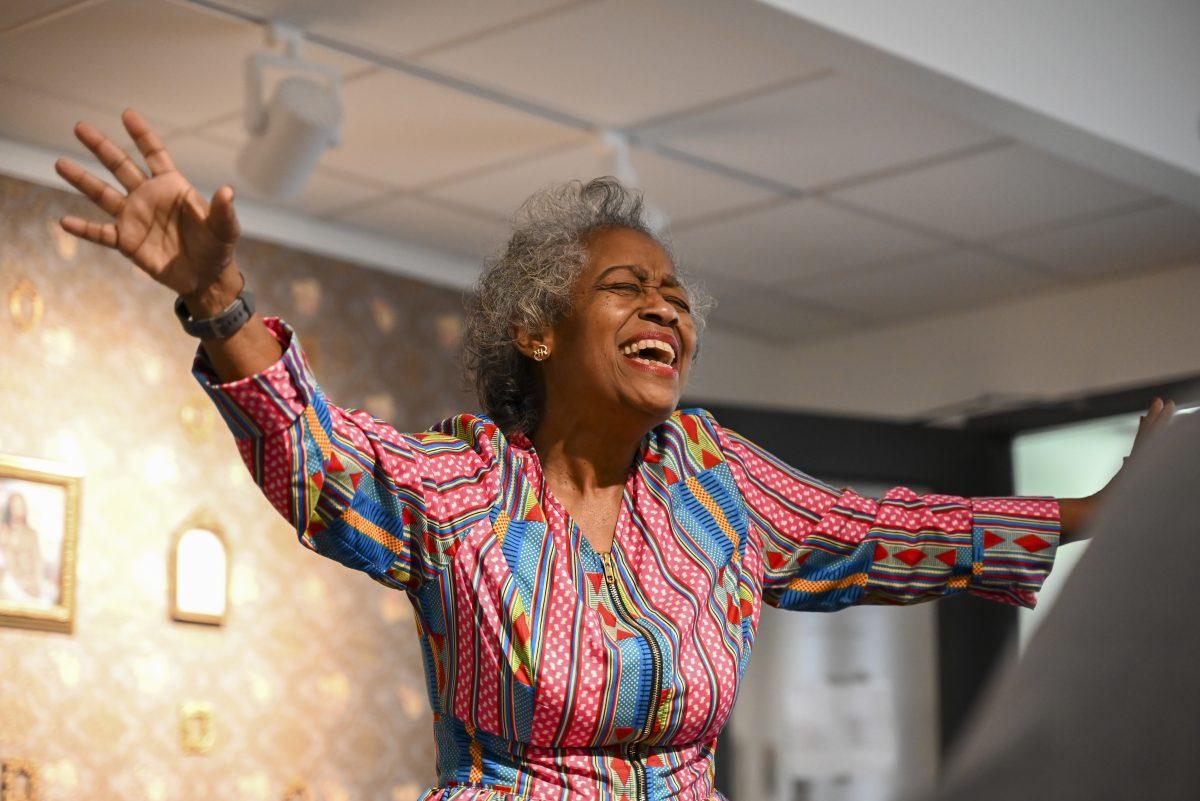The African American Cultural Center unveiled its “29 Days of Healing: Black Book Blitz Exhibit” showcasing 29 books written by Black authors Thursday. Through the exhibit, the center aims to create a nurturing learning environment where students can collectively engage in the healing process.
Brionna Johnson, the library coordinator of the African American Cultural Center Library and curator of the exhibit, said the idea for the book blitz came from her grandmother.
“My director asked me, ‘What do you imagine when you think about healing?’” Johnson said. “Instantly, I thought about my grandmother; I thought about her living room. … So the book blitz idea came from that — thinking about my grandma, thinking about the elders, thinking about storytelling and how books have healed me.”
Johnson said the blitz also helps amplify Black voices.
“Because the publishing industry does not always do a great job of uplifting and amplifying Black voices in Black literature, we really wanted to use this book blitz as an opportunity to highlight Black literature for Black History Month but also to highlight the books that are in our library, in our collection that specifically focus on healing,” Johnson said. “Whether it’s a shadow workbook, a self-care book or just a novel that once you read it, you walk away feeling a bit healed.”
Toni Thorpe, the center’s former program coordinator, said books have always comforted her when she needed it.
“Books have always been my best friends,” Thorpe said. “I like the transformative healing that books provide.”
During the ceremony, attendees heard readings from Tarana Burke and Brené Brown’s “You Are Your Best Thing: Vulnerability, Shame Resilience and the Black Experience” as well as an excerpt from Audre Lorde’s “A Litany for Survival.”
Thorpe shared her own dramatized version of the Sankofa story. The Sankofa story is a Ghanaian story that highlights the importance of ancestral knowledge.
“The Sankofa story is traditionally told in Ghana, West Africa,” Thorpe said. “The original story is about a bird deeply rooted in his village. … He decides to explore the world. … He becomes hungrier and frail, … so he calls to his ancestors for help, and they say, ‘Go back and fetch it,’ so he starts walking backward. … He finds the nutrition he needs. … The lack of food symbolizes the lack of knowledge of in your origin and roots. By the time he returns home, he’s healthy and whole again.”
Thorpe said understanding one’s history helps address current issues.
“It’s important to understand and value what people before us have been through,” Thorpe said.
Thorpe also said knowing ancestry can build a sense of your community where you can feel loved.
“We benefit by seeing the humanity in one another and that we really want the same things,” Thorpe said. “We’re designed to be in groups, and we want to belong, and we want to feel valued. …You don’t heal alone. You heal together.”
The exhibit is open until March 15 in the African American Center’s art gallery.














